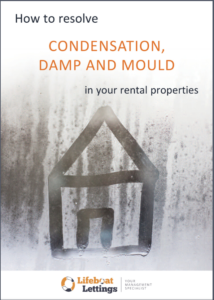
The UK government has recently released the findings of its 12-week consultation on Minimum Energy Efficiency Standards (MEES) and Energy Performance Certificates (EPCs) for the Private Rented Sector (PRS). These proposed changes could have a significant impact on landlords, particularly in Kent, where many properties may require costly upgrades to comply.
According to property consultancy Knight Frank, landlords in England and Wales could collectively face a bill of up to £21.6 billion to meet the new requirements.
What’s Changing?
Under the new proposals, private rental properties across England and Wales will need to meet a minimum EPC rating of C by 2030 for all tenancies, up from the current minimum EPC rating of E. Additionally, any new tenancies created from 2028 will be required to comply with the new standard.
The estimated cost of these improvements varies widely, ranging from £6,500 to £15,000 per property, with an average of around £8,148 per property as of January 2025. A cap of £15,000 per property is expected to be introduced to limit costs for landlords.
Changes to EPC Calculation Methodology
The way EPCs are calculated is also set to change. The focus will shift from the Energy Efficiency Rating (EER), which primarily considers the cost of heating a property, to a new system that evaluates fabric performance, smart readiness, and efficiency & emissions of heating systems.
- Fabric Performance – How well a property retains heat through insulation, double glazing, and draught-proofing.
- Smart Readiness – The use of energy-efficient technology such as smart meters, battery storage, and flexible energy usage.
- Heating System Efficiency – A stronger focus on low-carbon heating technologies, rather than just heating costs.
This change is expected to be introduced in late 2026. However, landlords whose properties already meet EPC C under the current system will not need to retest until their certificate expires (10 years from issue).
How Can Landlords in Kent Prepare?
To avoid last-minute non-compliance, landlords should act now to upgrade their properties before the new standards come into force. The government recommends prioritising building fabric improvements first, such as:
✔ Loft insulation
✔ Cavity wall insulation
✔ Double glazing
After these, landlords can choose to invest in either smart readiness metrics or heating system improvements, depending on what best suits their property.
Key Compliance Deadlines
✅ Now – Landlords should aim for EPC C while current standards still apply.
✅ 2026 (mid-year) – The new EPC calculation system comes into force.
✅ 2028 – All new tenancies must meet EPC C.
✅ 2030 – All rental properties must comply with EPC C.
With the upcoming Renters’ Reform Bill, tenants will only need to give two months’ notice to vacate a property. This means landlords could suddenly find themselves needing a new EPC at short notice—making it crucial to meet the standard well before 2028.
Exemptions and Costs
There will be a £15,000 spending cap per property, after which landlords may be eligible for an exemption. Other exemptions include:
- Third-party consent – If upgrades require freeholder, tenant, or planning permission and consent is refused.
- Property devaluation – If a surveyor confirms that required upgrades would reduce the property’s value by more than 5%.
- New landlords – Those purchasing with sitting tenants will have six months to comply.
Penalties for Non-Compliance
Local councils will have increased enforcement powers, and financial penalties for non-compliance will rise significantly. The proposed fines include:
- Letting a non-compliant property for under 3 months – Up to £30,000 per property (previously £2,000).
- Letting a non-compliant property for over 3 months – Up to £30,000 per property (previously £4,000).
- Providing false information on the PRS Exemption Register – Fines expected to increase.
- Failure to comply with an enforcement notice – Fines will likely increase significantly.
Additionally, local authorities may publicly name landlords who fail to comply with MEES regulations.
What Does This Mean for Landlords?
This represents one of the biggest shake-ups in rental property energy regulations in recent years. While the new EPC system aims to improve energy efficiency, the financial burden on landlords is significant.
Failure to prepare could mean hefty fines, difficulty letting properties, or even forced sales. However, landlords who take proactive steps can avoid last-minute stress and spread upgrade costs over time.
Need Help Navigating the Changes?
At Lifeboat Lettings, we specialise in helping Kent landlords navigate changing regulations. If you’re unsure how the new EPC rules will affect your properties, we can provide expert guidance on:
✔ Compliance strategies tailored to your properties
✔ Recommended cost-effective energy improvements
✔ Trusted contractors for insulation, glazing, and heating upgrades
📩 Contact us today to ensure your rental properties stay legally compliant and energy efficient!
P.S. “The best way to predict the future is to create it.” – Peter Drucker
Don’t wait for the deadline—start your EPC improvements today! 🚀




